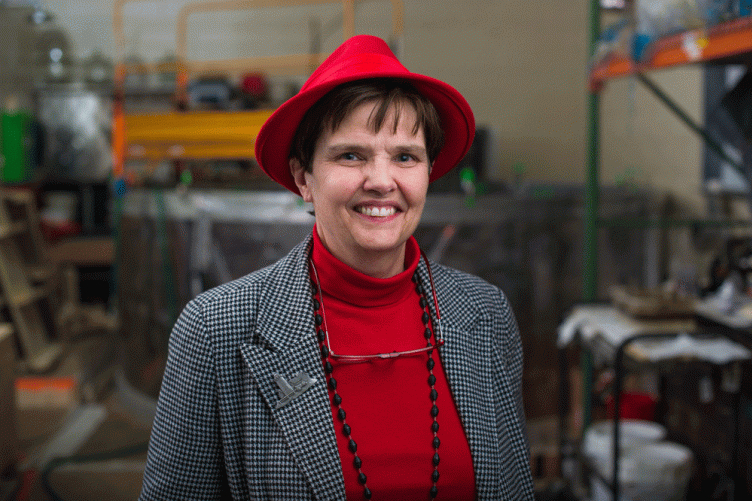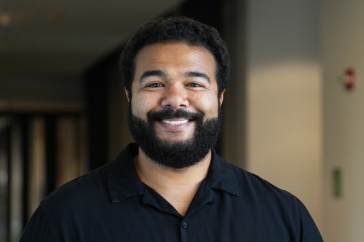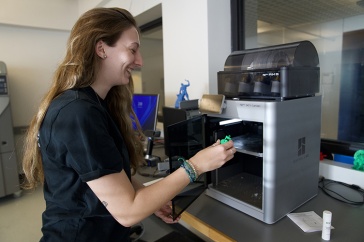
Editor's Note: This is the latest installment in our ongoing series featuring UNH faculty sharing their stories in their own words.
Nancy Kinner, professor of civil and environmental engineering
"My dad was in World War II; my mom was what we’d describe today as a traditional homemaker. I have an older sister and an older brother. Neither of my parents went to college, but they were insistent on two things. “One: You are going to go to college; you can do whatever job you want, but first go to college. Two: You better like what you do, because you’re going to do a lot of it.”
My sister became an educator, and my brother was in ROTC and, after Vietnam, attended the University of Delaware for his master’s degree in marine science. My brother, sister and I would all go on to spend very long careers in our chosen fields.
As a teenager, I was really interested in biology. I took a summer course when I was in ninth grade with kids from all over Suffolk County, New York. I remember going to marshes and beaches, and it was really transformative. My older brother worked in marine science and was an inspiration, and I had come from a sailing tradition — my parents had a boat that they really sacrificed to own — so that course was a real marrying of my loves.
My high school counselor steered me toward becoming a medical doctor. I applied to schools with a pre-med focus but ended up choosing to go to Cornell. My mom was a big influencer in that decision because there were so many opportunities beyond medicine available there, and — she was really prescient about this — “What if you decide you don’t want to be a doctor?” I went to Cornell and pretty quickly realized I didn’t.
In Cornell’s Arts and Sciences College, I majored in biology but also took non-science courses that shaped my interests. I took a course in ethics, and it was fascinating to me. Another course was in art history — from Rococo to the Impressionists. To this day, I still love to go to art museums.
I also took a course in phycology, which is the study of algae. It was taught by professor John Kingsbury, who was the founding director of the Shoals Marine Laboratory. It was a very small class, and it turned out there was, in 1974, an effort by Aristotle Onassis to put an oil refinery in Durham’s Great Bay and a port for the supertankers to offload at the Isles of Shoals. Professor Kingsbury was teaching our class and working against the oil facilities. The New Hampshire towns prevented the oil terminal from being built. The whole experience foreshadowed where I would end up.
In summer 1975, I had the opportunity to do a semester at the Shoals Marine Lab and on board the R/V Westward. My parents really sacrificed to make that possible because I wasn’t able to work all summer. It was such an amazing opportunity. I just fell for it — hook, line and sinker.
I intended to be a marine biologist, following in my brother’s footsteps, and I asked professor Kingsbury if I could come to the Shoals Lab and spend the summer out there after I graduated from Cornell. He offered to cover room and board in exchange for work on the island’s wastewater treatment system. This is where I took the next turn in my career: I realized that system wasn’t working. It was a biological system, but it needed an understanding of biology and engineering to fix it. After that experience, I told professor Kingsbury I was really interested in studying environmental engineering, and he put me in touch with Byron Saunders, dean of engineering at Cornell, who explained what I would have to do to make up coursework before graduate school for engineering.
When I told my parents I wanted to go into engineering, my dad, who worked in a company with many engineers, replied, “This is a natural fit for you.” Bless their souls. They put up with me being at home all that year and taking the additional undergraduate courses I needed to apply for graduate school in engineering.
I came to UNH for my master’s, expecting to graduate and be a consulting engineer. During the second year of my master’s degree, however, I had a funding opportunity for my doctorate through a federal program to recruit women into fields where they weren’t well-represented.
My uncle, who was a partner in a big Boston engineering firm, convinced me to take advantage of the doctoral funding. While I was doing my doctoral studies, I had several opportunities to teach. I found I loved it! As I look back over my academic career, I think my biggest impact has been in teaching students, though it was not what I ever thought I would do.
-
Written By:
Jennifer Saunders | Communications and Public Affairs | jennifer.saunders@unh.edu | 603-862-3585
















































